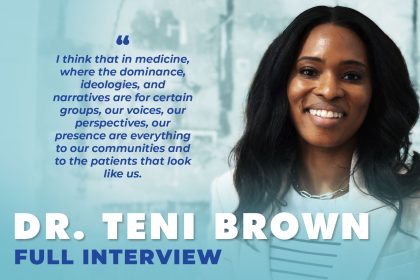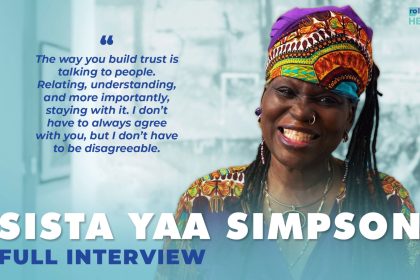Dr. Candice “C.C.” Weaver knows the phrase “hard work pays off,” because her grind and dedication got her where she is now. At the age of 15, Dr. Weaver lost her cousin, whom she called her best friend, to HIV. From there, she began doing public speaking about her loss, and winning awards and honors. After receiving an award from an assistant surgeon general, she decided to go to school to study public health, which later turned into her becoming a board-certified lifestyle medicine physician. Dr. Weaver continues to advocate for holistic wellness and self-care and encourages others to focus on self-love and their mental well-being.
Dr. Weaver spoke with rolling out about health disparities that are often not talked about in the Black community and preventative health.
What should we know about preventive health?
In terms of preventive health, that is the key to health care. Preventive health is more upstream instead of worrying about the problem once we have it. The idea is to prevent ourselves from having it. Ideally, we should engage in health care instead of sick care. The idea is to take care of ourselves while we are healthy instead of worrying about it once we become sick. That involves getting your vaccines on time, getting your Pap smears, getting your mammograms, getting your colon cancer screenings, taking care of yourself while you’re healthy, and preventing yourself from getting sick.
That means adopting a healthy lifestyle and getting 150 minutes of physical activity every week. Make sure that your diet is as healthy and nutritious and close to plant-based as you can. A lot of people within Black and Brown communities enjoy carnivorous diets, but you want to make sure that you keep your diet as healthy, balanced, and nutritious as possible. It also involves lowering stress, and having good social connections, getting good restorative sleep, getting enough water; all of those things contribute to preventing long-term morbidity and illness.
What are other health disparities that should be talked about within the Black community?
There are a lot of health disparities faced by minority communities and communities in our country. There’s a discrepancy in life expectancy. There’s a discrepancy in the burden of infectious and chronic diseases like high blood pressure or heart disease. There’s also a discrepancy in access to care that Black and Brown communities face. There are well-publicized cases of colon cancer and breast cancer, but there are some things that don’t get enough attention in minority communities that should be focused on. For instance, for issues of environmental justice, all we need to do is think about Flint, Michigan, and know that communities of color are often burdened by an inability to access clean water, and clean air even.
Mental health disparities, the stress of being Black or Brown in America actually wreak havoc on our systems. There have been studies where there have been high levels of inflammatory markers found in children from disadvantaged racial and ethnic communities, so these were precursors down the line for disease, hypertension, and other things. There are so many public health crises that communities of color face that should be brought to the forefront, including gun violence, homicide, and the detrimental health effects of racism and stress.

















